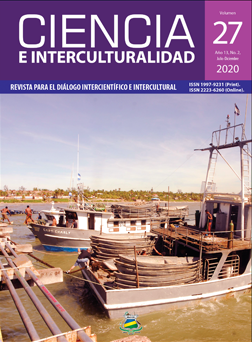Epistemologías indígenas y escolaridad. Relaciones y tensiones en el cotidiano escolar
Resumen
La investigación que sustenta este artículo fue resultado del doctorado con el propósito de comprender las dimensiones que urden la trama de las experiencias escolares de jóvenes en la Argentina que se autorreconocen al pueblo indígena Tastil y concurren a una escuela rural de nivel secundario. Se ahonda en el entramado de relaciones y tensiones entre el capital cultural (comunitario indígena y familiar) y el capital escolar que subyace en la unidad social representada por una configuración escolar y, que cobra sentido en el tejido social e histórico más amplio.
Por la naturaleza del objeto de estudio, el enfoque y la estructuración de la investigación se apoyan en un diseño de tipo cualitativo (Vasilachis de Gialdino, 2007). Se optó por un estudio de caso de carácter exploratorio. Los instrumentos de recolección de datos fueron cuestionarios semiestructurados, entrevistas en profundidad y observaciones participantes. El material empírico obtenido pone en evidencia que los modos de hablar, comunicarse, concebir y ocupar el espacio social que traen consigo los estudiantes, guardan distancias significativas con el capital cultural que imparte y legitima la escuela. Más que un dialogo de epistemologías, hay una tensión y confrontación que deja al descubierto las desigualdades de poder entre grupos indígenas e institución escolar. Desigualdades que se expresan mediante procesos de inferiorización y discriminación que devalúa las subjetividades estudiantiles.
Descargas
El autor mantiene los derechos morales y permite la cesión gratuita, exclusiva y por plazo indefinido de sus derechos patrimoniales de autoría a la Universidad de las Regiones Autónomas de la Costa Caribe Nicaraguense (URACCAN).






